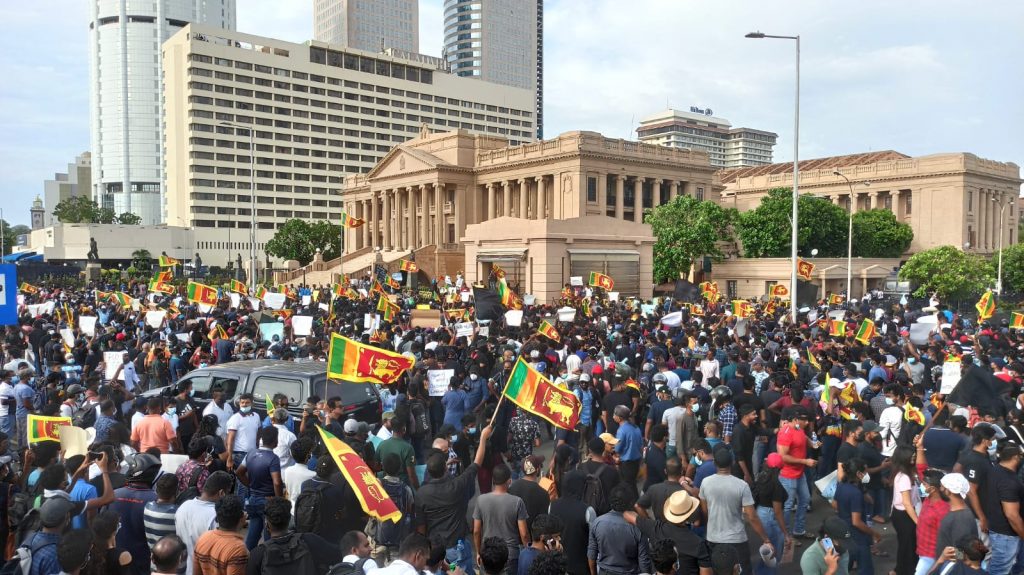NewsGate Press Network
Dramatic scenes of chaos were reported from many parts of Sri Lanka on Monday the 9th of May 2022 following abrupt resignation of Prime Minister Mahinda Rajapaksa in wake of worsening economic crisis.
The island state is facing unprecedented economic hardship since it became independent in 1947 chiefly as many economists believe due to ill conceived business dealings with China.
Demonstrators who had taken to the streets in capital city of Colombo have been demanding resignation of both the Rajapaksa brothers, the president as well as the prime minister namely Gotabaya Rajapaksa and Mahindra Rajapaksa.
One report on Monday stated that rioters had burnt down Mahinda Rajapaksa’s house in the city of Kurunegala which lies in the north-west Sri Lanka.
This apparently happened soon news had spread like wild fire that Mahindra Rajapaksa had stepped down as prime minister.
After clashes were reported between opposing political camps and the police, authorities had imposed a nation-wide curfew.
At numerous locations curfew restrictions were violated and clashes took place.
On Friday, the government imposed a state of emergency granting the military sweeping powers to arrest and detain people.
Monday’s resignation comes 13 years after the Rajapaksas became national heroes to the overwhelming Sinhalese majority in Sri Lanka as the military crushed the separatist Tamil Tiger guerrillas, ending a quarter century of violence and anarchy.
Mahinda Rajapaksa was then the President while Gotabaya Rajapaksa, now the President, was the Defence Secretary.
Sri Lanka is facing its worst economic crisis since independence with food and fuel shortages, soaring prices and power cuts affecting a large number of the citizens, resulting in massive protests over the government’s handling of the situation.
The recession is attributed to foreign exchange shortages caused by a fall in tourism during the COVID-19 pandemic, as well as reckless economic policies, like the government’s move last year to ban chemical fertilizers in a bid to make Sri Lanka’s agriculture “100 per cent organic”.
Due to an acute shortage of foreign exchange, Sri Lanka recently defaulted on the entirety of its foreign debt amounting to about USD 51 billion.
The economic situation has led to huge protests with demands for the resignation of Prime Minister Mahinda Rajapaksa and President Gotabaya Rajapaksa.


Comments are closed for this post.